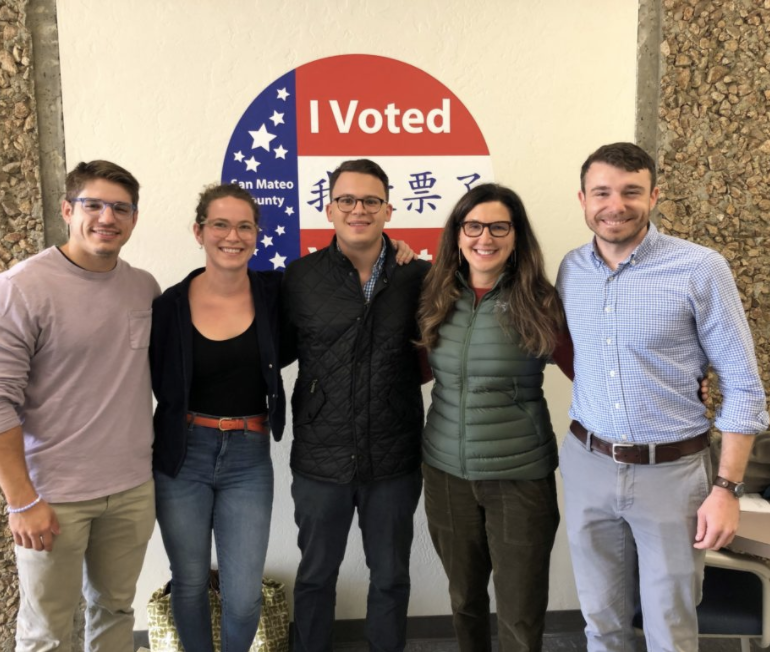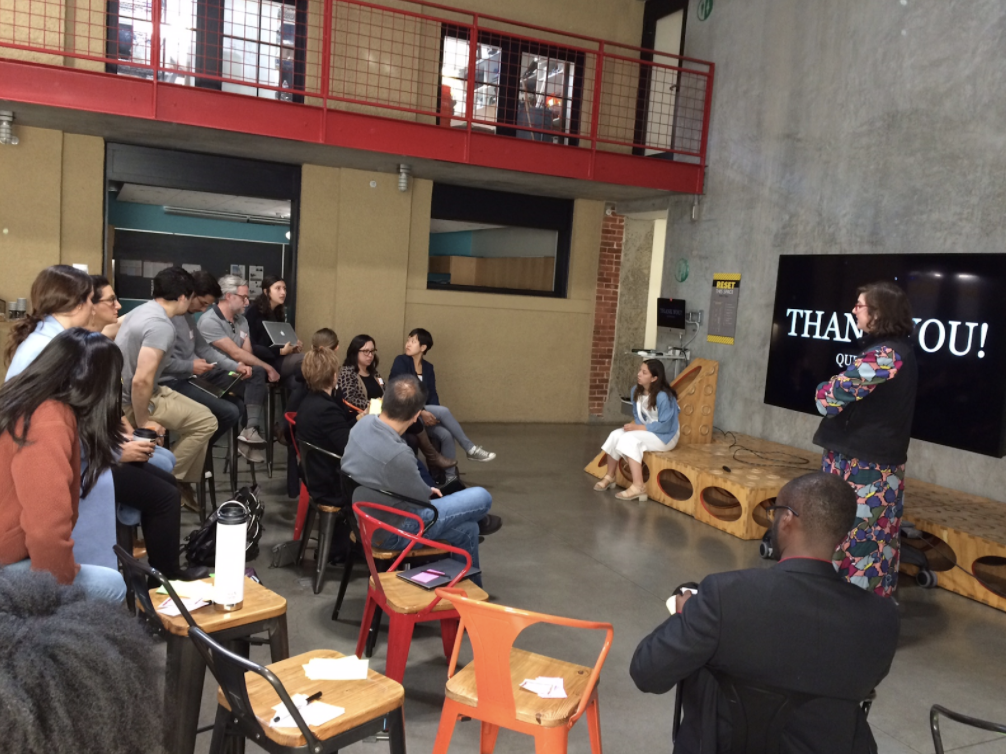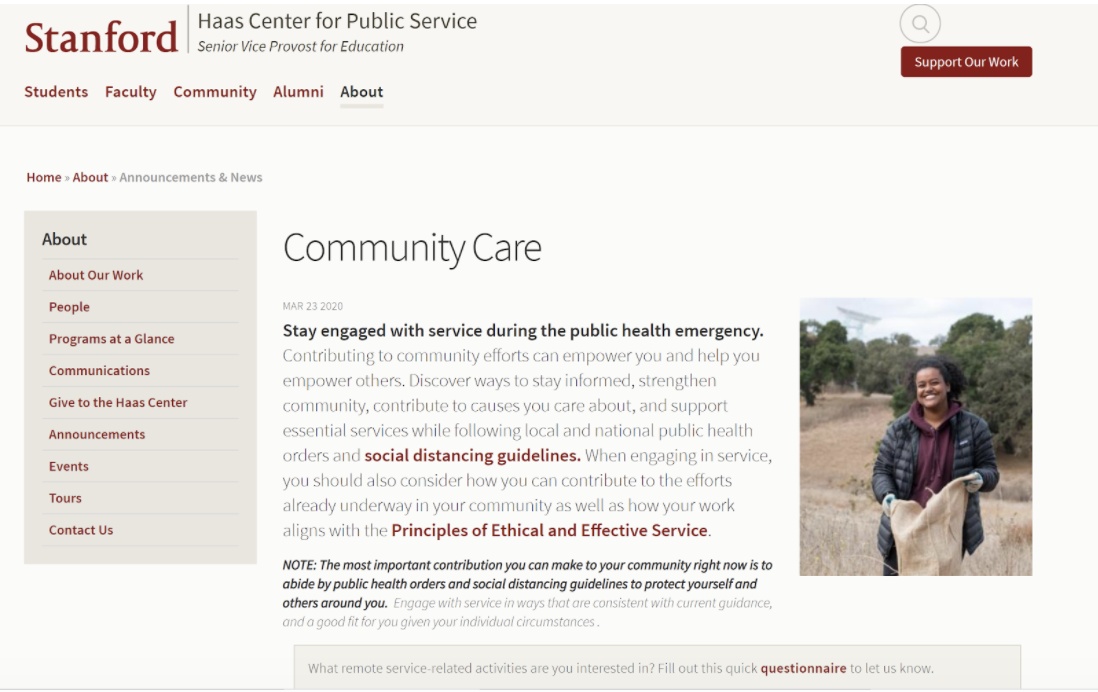
Solving for the Collateral Effects of COVID-19
Over the past several years, the Law and Policy Lab has become a magnet for breaking issues and no challenge has been greater than the COVID-19 pandemic. Both the Law and Policy Lab and across Stanford University, faculty, students, staff, and research centers are engaged at every level in understanding and remediating the damage of the virus. Many of those projects focus on public health and the medical response, while others investigate interventions to some of the collateral effects. Policy Lab projects are focused on advising real-world clients and interest groups on an array of issues related to the effects of COVID-19, including voting by mail, remote teleworking, and housing and eviction policies. Over the next few weeks, the Policy Lab blog will feature articles that highlight our work in shaping local, state, and national policies for the COVID-19 era. Among those projects are:
The Every Vote Counts research team has just released a full report focused on voting-by-mail: Signature Verification and Vote-by-Mail Ballots. The report has implications nationally for states that are expanding their vote-by-mail operations. Using California as a case study, the report scopes how county election officials across the state are managing a new state law that requires counties to reach out to voters whose ballot ID signatures do not match the documented county file or who forgot to sign their mail-in ballots. Under the new law, county officials must notify such voters of the mismatched or missing signature and give those voters an opportunity to correct, or “cure,” their ballot signatures. Now, in the face of COVID-19, voting from home is recognized as the safest method of protecting voters’ health. The lessons gleaned from the Every Vote Counts project will help other states prepare to manage their own high volume vote-by-mail operations.

The Justice By Design + Eviction design team is innovating new approaches, technologies, and policies for courts seeking to manage evictions for people who do not have lawyers. This access to justice project has been underway for the past two years. It has taken on new urgency with evictions expected to spike in coming months in the wake of the economic fallout from COVID-19. Through observations in court, interviews with city officials, focus groups with both tenants’ rights advocacy groups and landlords, students are mapping out opportunities for change in the system and helping to redesign systems among partner cities. Look for an upcoming blog article on how this team is helping the City of San Jose develop new laws, policies, regulatory frameworks, and incentives to encourage private homeowners to build accessory dwelling units (ADUs) for low-income tenants.

The pandemic has pushed millions of Americans to work remotely from home. Some businesses and government operations were better prepared for remote work than others. For many, there are considerations of privacy and security in accessing sensitive databases and systems; there are questions of how best to support tightly connected teams and units; and there are limitations in technological capacity and other resources. This is especially true for government operations. The California County Controller’s Office approached the Policy Lab with research questions about how to adapt existing frameworks and resources to be better prepared for the next disaster or emergency. Faculty adviser, Diane Chin, Associate Dean for Public Service and Public Interest Law, is guiding the research team through the thicket of regulatory and legal issues related to teleworking for state agency employees. Look for a full report in June.
Supporting these projects this quarter has been an object lesson in teleworking for the Policy Lab, as well. Like most other universities and professional schools, Stanford Law School has responded to the COVID-19 pandemic with online, remote, distance learning. We have moved interactive, immersive learning environments online through Zoom. We have set up more frequent check-ins with our student research teams. We have expanded our program to include summer job opportunities for both law and policy students across the university. Yet, even as professors and staff across the law school have met the technical challenges, we continue to grapple with how best to demonstrate compassion and care for our students, clients, colleagues and extended community. Even though, for the Policy Lab, connection on a global scale is a feature that is helping us to broaden our scope of impact, the need for human connection, compassion, and understanding has never been more necessary or challenging. And, thus, we end here with this call to compassionate action through the Stanford Haas Community Care website to inspire you to engage with projects you care about and elevate the communities around you through this time of crisis.

Leave a Comment